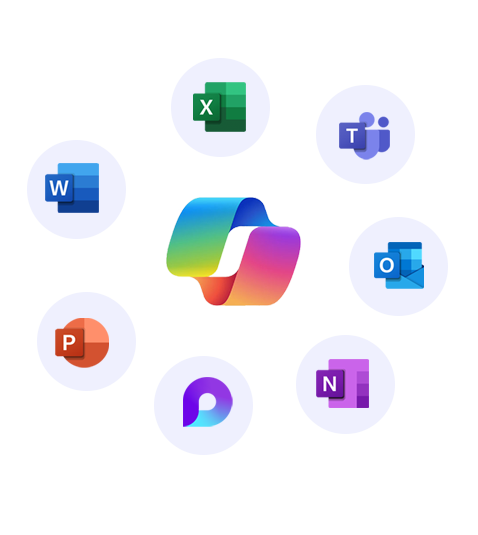Copilot AI Prompt Engineering for Lawyers/ Law Firms
Many lawyers are adapting to the growing trend of using Microsoft Copilot AI to streamline their workflows by learning prompt engineering. This skill helps lawyers communicate more effectively with Copilot AI and improves the overall quality of the results generated.
Although you can use Copilot AI without using prompt engineering, lawyers will probably find the results are more relevant and accurate when using it. Prompt engineering is the art of creating precise queries that consistently generate the desired results.
Copilot AI has a complex method for gathering the information used in responses. Understanding this process can help write more effective prompts and lead to more positive results.
This article will go over everything you need to know to start learning Copilot AI prompt engineering. Copilot AI for lawyers is already an extremely useful tool so knowing how to increase its effectiveness can be a major benefit.
What Is Copilot Prompt Engineering for Lawyers?
AI prompt engineering for lawyers is the process of understanding how Copilot AI gathers its information and crafting effective queries to get consistent results.
A prompt is simply a user-entered query made to Copilot AI with a specific outcome in mind. Without prompt engineering skills, a prompt may be too vague, broad, or unintelligible for Copilot to effectively deliver the desired results.
To avoid this, crafting specific and effective prompts can make Copilot much more effective and consistent, especially for lawyers. Since lawyers deal with sensitive data, added protection against inaccuracy and hallucinations is important.
The process of prompt engineering involves trial and error with many different responses until the most effective one is found. Changing terminology and instructions during this process can help find the most efficient wording that Copilot AI can work with the best.
How to Use Prompt Engineering in Microsoft Copilot for Lawyers?
The process of using Copilot AI prompt engineering for lawyers begins with creating a query with precise language and no ambiguity. Simple, concise sentences will work the best.
Be careful to avoid being too formal and try to write in an active voice when possible. It’s best to take a conversation approach when creating queries and adapt them based on the results.
For lawyers, providing the right context for the desired output is important. Using introductory statements can help provide context and be sure to provide as much background information as possible.
It’s important to be as specific as possible when tweaking the queries and to always be aware of the moral obligations that come with being a lawyer.
Tailored Copilot AI Prompts for Lawyers/ Law Firms
Below are a few examples of good Copilot AI prompts for lawyers/law firms. These prompts have been tailored to get the right results consistently and are clearly understood by Copilot AI.
- “Help me prepare for my next meeting. What decisions were made at the meeting, and what were the suggested next steps?”
- “Draft a response to this email thread with a professional tone that conveys the following points…”
- “Summarize this page as an email.”
- “Draft a contract for a new business partnership.”
- “Summarize the key points of a legal document.”
- “Research and summarize the latest case law on a specific topic.”
- “Create a checklist for conducting due diligence on a potential acquisition.”
- “Draft a response to a legal complaint.”
- “Generate a list of potential legal risks for a new project.”
- “Create a template for a nondisclosure agreement.”
- “Summarize the key provisions of a new regulation.”
All of these prompts have been engineered to be effective at achieving the desired outcome but will still need to be tweaked based on specific needs and circumstances. This includes specifying which documents and emails to summarize as well as providing context and necessary data.
Bad Copilot AI Prompts for Lawyers
There are a few bad practices to avoid when prompt engineering for lawyers. One of the most common issues is crafting prompts that are too vague.
This can lead to a poor understanding of the requirements of Copilot AI leading to inaccurate results. Prompts that are too vague include queries asking Copilot to summarize something without specifying what needs to be summarized. Another example is telling Copilot AI to draft a contract without providing the necessary details.
Using prompts that are too complex should also be avoided. Copilot AI is a powerful tool but it cannot replace the expertise of a professional lawyer. Because of this, asking for complex analysis or lengthy requests may result in inaccurate results.
Lawyers will also run into trouble if they prompt Copilot AI for things outside of its capabilities, such as asking for briefs that are guaranteed to win in court. Copilot is not able to guarantee the outcome of any legal documents drafted. It is still up to lawyers to check over the output and improve where possible.
Apps4Rent Can Get Your Law Firm Setup with Copilot AI Today!
If you are ready to use the power of Copilot AI prompt engineering to streamline your workflow, Apps4Rent can help get you set up. We are a licensed Microsoft Solutions Partner and can provide licenses and technical support for Microsoft 365 Copilot. Contact us today to get started!
Apps4Rent – Tier 1 Office 365 Cloud Solution Provider
Copilot integrates with all your favorite Microsoft apps

Get started with
Microsoft Copilot today!


